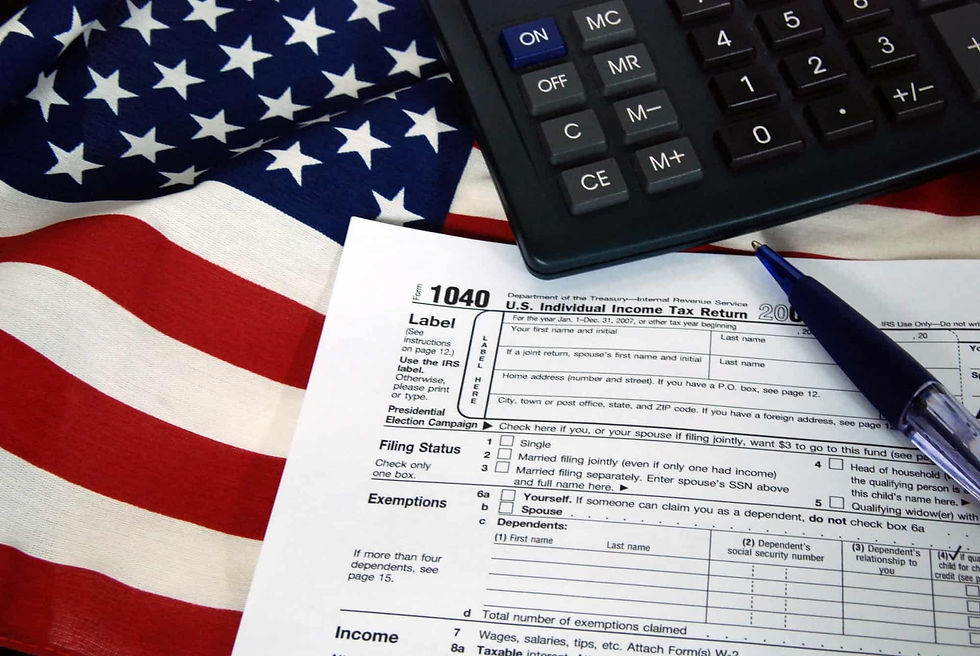501c3 IRS Application: Understanding the Key Requirements and Guidelines
- EZ 501c3
- May 25, 2023
- 3 min read
Updated: May 26, 2023
The Internal Revenue Service (IRS) provides tax-exempt status to certain business organizations that qualify as charitable, religious, educational, scientific, or literary entities under section 501c3 of the Internal Revenue Code.
Obtaining this tax-exempt status can be highly beneficial for organizations, as it allows them to receive tax-deductible donations and enjoy various tax advantages.
However, the 501c3 IRS application can be quite complex and time consuming as well, So, in this guideline, we are going to explore the key requirements and steps for navigating the process successfully.

Meet Eligibility Criteria:
To be eligible for 501c3 status, an organization must meet certain criteria requirements. First and foremost, the organization must be owned and operated exclusively for religious, charitable, educational, scientific or literary purposes.
The organization must not engage in any activities that violate any kind of public policy. Make sure that they are not involve excessive lobbying or political campaigning.
In addition to these, the business entity must be a corporation, community chest, fund or foundation. Certain types of organizations, like hospitals, churches and universities may be qualified for automatic exemption without filling a 501c3 IRS application.
Form 1023 or Form 1023-EZ:
The primary document required for 501c3 IRS application is to fill the Form 1023. It is the Application for Recognition of Exemption Under Section 501c3 of the Internal Revenue Code. This comprehensive form requires detailed information about the organization’s structure, its purpose, activities, governance, finances and more.
So, it is crucial to fill out the form in an accurate manner. The organization also need to provide several supporting documents, like the articles of incorporation, bylaws, financial statement and a narrative description of the organization’s activities.
However, certain organizations with less complex structures and finances may qualify to use Form 1023-EZ. It is a Streamlined Application for Recognition of Exemption Under Section 501c3 of the Internal Revenue Code. This is a shorter and less burdensome form, but it has stricter eligibility requirements. So, it is quite important to review the instructions for both Forms to determine which one is appropriate for your organization.

Organizational Structure and Governance:
The IRS pays close attention to an organization’s structure and governance to ensure that it operates exclusively for tax-exempt purposes. This includes having a well-defined organizational structure with clear roles and responsibilities, a board of directors with appropriate oversight, and a conflict-of-interest policy. The organization must demonstrate that it is not serving the private interests of its members or individuals associated with it.
User Fee:
When submitting 501c3 IRS application, the IRS requires a user fee, which varies depending on the organization’s gross receipts. The fee can range from a few hundred dollars to several thousand dollars. Therefore, it is crucial to check the most up-to-date fee schedule published by the IRS to ensure accurate payment.
Financial Requirements:
Financial transparency is a vital aspect of the 501c3 IRS application process. The organization must provide financial statements, including balance sheets, income statements, and revenue and expense statements for the past three years or since inception if the organization is less than 3 years old.
In addition to these, it must develop a reasonable budget that reflects its intended activities and purposes.
Narrative Description of Activities:
The IRS requires a detailed narrative description of the organization’s past, current and planned activities. This description should clearly demonstrate how the organization furthers its stated tax-exempt purposes and how it benefits the public. The narrative should include information about the organization’s programs, services, target population, geographical area served, and expected outcomes.

Record Keeping and Compliance:
Maintaining proper records and complying with IRS regulations are essential for maintaining 501c3 status once it is granted. The organization must keep detailed records of its activities, including financial transactions, donor information, board meeting minutes, and other relevant documents. It is also crucial to file annual information returns, such as Form 990, and adhere to the IRS’s reporting and disclosure requirements.
Timelines and Processing:
The processing time for 501c3 IRS application can vary significantly. While the IRS aims to process applications within a reasonable time, it is not uncommon for the process to take several months or even longer time. It is important to plan accordingly and ensure that all necessary documents and information are included in the application to minimize unnecessary delays.
Seek Professional Guidance:
Given the complexity of the 501c3 IRS application process, many organizations find it beneficial to seek professional assistance. Attorneys, accountants, or tax-exempt specialists can provide guidance, review the application, and ensure compliance with IRS requirements. While professional assistance is not required, it can greatly increase the chances of a successful application.
Conclusion
So, obtaining the 501c3 tax -exempt status from the IRS is a significant milestone for charitable and non-profit organizations. Understanding the ley requirements and guideline for the 501c3 IRS application process is crucial for a successful outcome.
By carefully preparing the necessary documentation, ensuring compliance with IRS regulations, and seeking professional assistance if needed, the organizations can easily navigate the process with greater confidence.



Comments